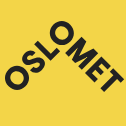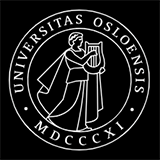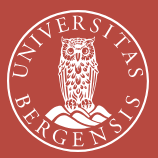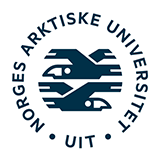The University of Oslo (UiO) is the oldest and largest comprehensive university in Norway, located in Oslo, the capital of Norway. Here are some key information about the University of Oslo:
Overview
Founded: 1811
Nature of institution: public
Main campus location:
Oslo, main campus
History
The University of Oslo was founded in 1811 and is the first national higher education institution in Norway.
The establishment of the school marked a new stage in the development of education and science in Norway, and had a profound impact on Norwegian culture and society.
School Strength
UiO has about 27,000 students and about 7,000 faculty and staff.
Offers undergraduate, master's and doctoral courses covering a wide range of disciplines.
Enjoys an international reputation in the fields of natural sciences, medicine, social sciences, humanities, law, theology, etc.
The school has strong research capabilities, especially in physics, chemistry, biology, medicine, psychology, economics, history, etc.
Educational philosophy
Emphasis on research-based teaching, encouraging students to participate in scientific research projects.
Focus on interdisciplinary cooperation, especially between different majors.
Attach importance to international education, recruit international students, and provide courses taught in English.
Committed to solving global problems and promoting sustainable development and social justice.
Subject settings
Bachelor's degrees:
Natural sciences
Medicine
Social sciences
Humanities
Law
Theology
Dentistry
Psychology
Economics
Education
Master's degrees:
Biology
Chemistry
Earth sciences
Mathematics
Physics
Astronomy
Computer science
Information technology
Psychology
Social work
Political science
Economics
Cultural studies
Arts
Law
Theology
And other related fields of master's programs
PhD programs:
Biology
Chemistry
Earth sciences
Mathematics
Physics
Astronomy
Computer science
Information technology
Psychology
Social work
Political science
Economics
Cultural studies
Arts
Law
Theology
And other related fields of doctoral programs
English-taught courses:
Most master's and doctoral programs are taught in English to attract international students.
Professional direction
Natural sciences: including biology, chemistry, earth sciences, physics, etc.
Medicine: involves basic medicine, clinical medicine, public health, etc.
Social sciences: including psychology, sociology, political science, economics, etc.
Humanities: including history, philosophy, linguistics, cultural studies, etc.
Law: covers legal theory and practice.
Theology: focuses on religious studies and theological education.
Dentistry: focuses on oral health and dental treatment.
Psychology: involves clinical psychology, cognitive psychology, etc.
Economics: involves microeconomics, macroeconomics, finance, etc.
Education: trains teachers for primary, secondary and higher education.
Campus
Oslo Campus:
Located in the center of Oslo and surrounding areas, with convenient transportation.
The campus has modern teaching facilities, libraries, laboratories and social spaces.
The main campuses include Blindern, Røros, Østfold and other important locations.
International Cooperation
UiO actively participates in international exchange programs and has established cooperative relations with many higher education institutions around the world.
Provide exchange student programs to promote students' international vision and cultural exchanges.
As a member of the European University Association (EUA) and other international organizations, UiO has an important position in international education and research.
Cost
For EU/EEA students, UiO is usually free, but a small registration fee is required.
For non-EU/EEA international students, tuition fees vary depending on the major, generally between 6,000 and 14,000 euros per year. The specific fees should be consulted directly with the school or visit its official website for the latest information.
In terms of living costs, the cost of living in Oslo is relatively high, but you still need to consider the costs of accommodation, food and personal expenses.
Application requirements
Applicants usually need to have a high school diploma or equivalent.
You need to pass an entrance exam or interview to demonstrate your interest in the chosen major and your ability to work in a related profession.
The English proficiency requirement is usually B2 level (according to the Common European Framework of Reference for Languages CEFR), and some majors may require higher levels.
-

OsloMet - Oslo Metropolitan University
-

University of Oslo
-

University of South-Eastern Norway
-

University of Inland Norway
-

Nord University
-

University of Bergen
-

Norwegian University of Life Sciences
-

University of Stavanger
-

University of Agder
-

University of Tromsø
-

Mesoamerican University
-

Istmo University
-

Mariano Galvez University of Guatemala
-

Regional University of Guatemala
-

Galileo University
-

Francisco Marroquín University
-

Rafael Landívar University
-

University of the Valley of Guatemala
-

University of San Carlos of Guatemala
-

Technological Institute of Tlaxcala Plateau
-

Golfo University
-

Technological University of South Sonora
-

Technological University of Huejotzingo
-

Tizimín Institute of Technology
-

Chilpancingo Institute of Technology
